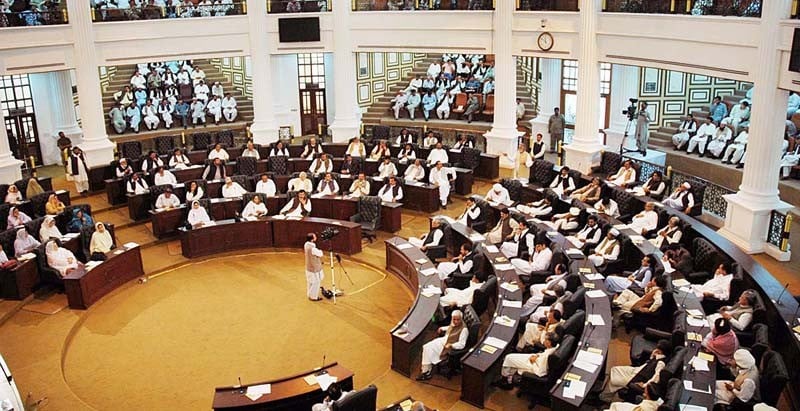
The Right to Public Services Act can make a huge difference in KP if it is properly implemented

Guaranteeing time-bound public service delivery has shown stupendous impacts in countries where laws have been enacted to promote transparency and accountability. Before we look at Pakistan’s situation, we should first have a glimpse into what the rest of the world has done in this regard.
If we take an example from history, United Kindom’s Prime Minister John Major introduced reforms in the UK in 1991 known as Citizen Charter, which allowed service users to receive services under a mutual agreement. It raised service delivery standards and responsiveness of the service provider. The debate generated around weak service delivery and usefulness in UK, which led the House of Commons to publish its 2007-08 report on "Public Services: Putting People First". It recommended clear, precise, and enforceable statements of entitlements through public service guarantees. This is how administrative guarantees converted into legal rights.
The Citizen Charter movement from the UK spread across the globe and different countries, including Belguim (1992), Canada (1995), Australia (1997) and India (1997) adopted it.
This has led to the adoption of a rights-based approach of guaranteeing time-bound public services. Indian state Madhya Pradesh is the first in South Asia to enact and implement various public service provision departments. This enactment was followed by successive legislations in almost 19 states of India under which various public services are enlisted for effective and timely delivery.
In Pakistan, a big change happened in electioneering slogans. Transparency, accountability, and good governance were mentioned for their centrality to the well-being of the general masses.
Most of the political parties adopted slogans which highlighted in their political manifestos the importance of good governance and reforms. The efforts towards devolution of powers brought about by the parliament through the 18th Amendment added strength to these political slogans.
These positive developments have changed the style of governance in provinces where provinces are governed by different political parties and their allies. The PTI-led political coalition in Khyber Pakhtunkhwa took legislative steps and tabled, debated, and passed more than 30 acts, including the Right to Information, Local Government Act, and Accountability Act. The Right to Public Services Act, was passed in January 2014.
The Act provides time-bound public services to eligible residents of Khyber Pakhtunkhwa, strictly imposes penalties on government functionaries for not providing services within a stipulated time, grants compensations to citizens who are affected by service deficiency/denial and places strong enforcement mechanisms.
In the first phase, the provincial government has notified five key public services. Now the citizens have the right to receive services, a) issuance of fard in 7days, b) registration of birth/death certificate in 2days, c) approval of residential building plan in 30days, d) registration of FIR/daily diary instantly and e) domicile in 10days. Recently, the provincial government has added three more proceeding services, a) examination by a doctor in OPD in DHQ/THQ, RHC, and BHU in 2hours, b) examination by the medical officer in 30minutes and c) issuance of drug license in 10days.
The provincial government is also planning to expand the services by including provision of municipal services, distribution of zakat, issuance of driving/arm license, and education services in public sector institutions. Consultations are in process with different stakeholders to reach a consensus for time-bound delivery for each service.
Hanif Orakzai, Chief Commissioner, RTS Commission revealed during a training workshop in Pakistan Academy of Rural Development that the commission did extensive consultations with all the stakeholders, including the front line service providers before finalising time for each service.
He also quoted the example of OPD services in hospitals where the commission did consultations with management of all hospitals in Peshawar and agreed that 2-hours are enough for a patient to be served in the outdoor. Similarly, provision of emergency services in a hospitals are also time-bound with consultations of CEOs of tertiary hospitals. However, the same time has been fixed for RHC and BHU OPD services as well which is in contradiction to what the government has already approved in its Primary Healthcare Standards.
Standard 2.4 says that priority will be given to the extremely sick patients first, including elderly and babies. Similarly, sick patients/ extreme ages will be treated within 15 minutes at service outlets. Standard 2.6 says that at BHU/RHC, waiting time is fixed at no more than an hour.
Orakzai also said that Information and Communication Technologies-based feedback system will help the commission seek continuous feedback from users, building a communication between provincial government and citizen and improve trust over public service delivery. This is despite the fact that the provincial government has enacted this law in haste and has not prepared much before looking into what it really requires for its implementation.
A number of supporting initiatives are important to make implementation of this law in KP effective. First and foremost is to do extensive consultations with departments before notifying the services to be time-bound. Consultations must be done with all the stakeholders, including the policy makers and service providers. This will help assess readiness of the departments in implementing the law.
Second, in most of the cases, frontline service providers are not provided with computers and allied accessories to properly digitise applications and then allow citizen to track it till its approval. Third, capacity development is a huge task as all the service providers must be trained on this new law and its effectiveness.
Fourth, educating citizens about its use through a massive awareness campaign and specifically focusing on the illiterate to access information for their use and benefits. In this regard, the existing community committees, including the Parent Teacher Council (PTC), Primary Care Management Committee (PCMC), and Water User Committee (WUC) can play a catalytic role in making this law effective at the frontline provider level.
Lastly, the civil society and media should also keep monitoring its implementation and help raise awareness levels of citizens for its wider use.